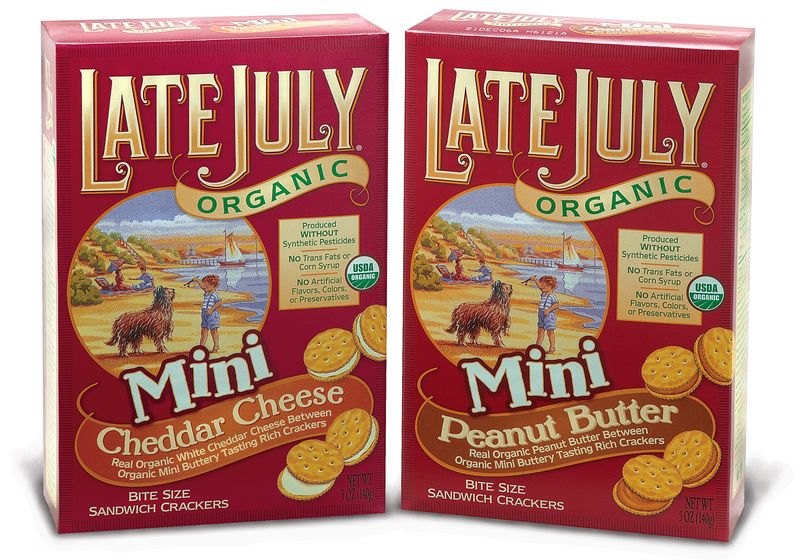Seems like every product on supermarket shelves now claims to have added “probiotics” – but not all these foods are created equal! Eating fermented foods, especially yogurt and kefir, is really the best way to add probiotics to your diet because these are whole foods (as opposed to snack foods or supplements) that also contain beneficial nutrients, like calcium and protein for example. Here is a little more info, as well as my favorite probiotic-containing foods.
What are probiotics?
Probiotics are live microorganisms added to food and supplements. When you see the phrase “contains live and active cultures” on a container of yogurt, kefir, or other fermented product, you know there are probiotics – or “good bacteria” present.
Why are probiotics good?
People have been eating yogurt, kefir, and other fermented foods for hundreds of years, and many studies have shown health benefits such as improved digestion, reduced inflammation, enhanced immunity, and increased absorption of nutrients (because of improved digestion). Eating yogurt or kefir on a regular basis may lead to improved health.
Who should be eating probiotics?
Everyone, but especially people who suffer from allergies, asthma, constipation, irritable bowel syndrome, lactose intolerance, or yeast infections. Of course it’s important to ask the advice of your doctor or dietitian before adding fermented foods to your diet if you have lactose intolerance, dairy sensitivities, or other chronic health problems.
What are the best sources of probiotics?
Fermented foods are best. Yogurt and kefir (the plain varieties, which have no added sugar and thus no “empty calories”), as well as buttermilk, sourdough bread, sauerkraut, pickles, kim chi, sour cream, injera (the Ethiopian pancake-style bread) and kombucha (fermented tea).
Which yogurts and kefirs are best?
My favorite brand of kefir is Lifeway, because they offer a huge variety of products and their organic version is made with milk from grass-fed cows. Their kefirs are also lower in sugar than other brands and much lower in sugar than many yogurts. As for yogurts, I have many favorites, but am especially loyal to Stonyfield, Clover Organic (on the West coast), and Brown Cow. My recommendation is to look for an organic yogurt or kefir that is low in sugar and comes from humanely treated cows.
What do you do with kefir?
Kefir is a fermented milk drink that tastes like yogurt, but is thinner (drinkable) and almost a little bit bubbly. I like to drink it just on it’s own, but it’s also great poured over fruit or cereal, added to smoothies, creamy soups or mashed potatoes, or in baked goods – you can use it anywhere you’d as you would buttermilk. If you’re new to kefir, try a flavored version (strawberry, blueberry, and peach are delicious!) as a snack or a creamy dessert!







6 Comments
brandi
January 31, 2012 at 5:19 ami’ve never tried kefir, but i do love yogurt!
Amelia
February 3, 2012 at 3:43 pmIf you love yogurt, you’ll love kefir too. It’s the perfect smoothie ingredient too b/c it’s like adding yogurt & milk in one!
zsodi
June 5, 2013 at 7:41 pmI make delicious puddings using either pureed fruit with plain kefir or flavored kefir with 1/4 cup chia seeds. Just let the mixture sit in the fridge for about 1/2 hour and viola ,,,,,,yummy pudding!
Amelia
June 7, 2013 at 5:02 pmYum!
Kyla
July 20, 2013 at 9:05 pmIs it possible to get too much probiotics? I take RAW (Garden of Eden) Womens probiotic with 80 million live cultures (or something like that) in it and Im also thinking about starting to drink one cup of Kefir daily.
Amelia
July 22, 2013 at 9:29 amI personally believe that it’s better to get probiotics from real foods like kefir than from a supplement. If you like kefir and/or yogurt, or kombucha/miso/other fermented foods, eating a serving or two of these per day is probably best. As for as amount, I would just keep portions moderate (1-2 servings/day). Just like lack of probiotics can disturb digestion, so can eating too many. You want to keep your yeast/bacteria ratio in balance.